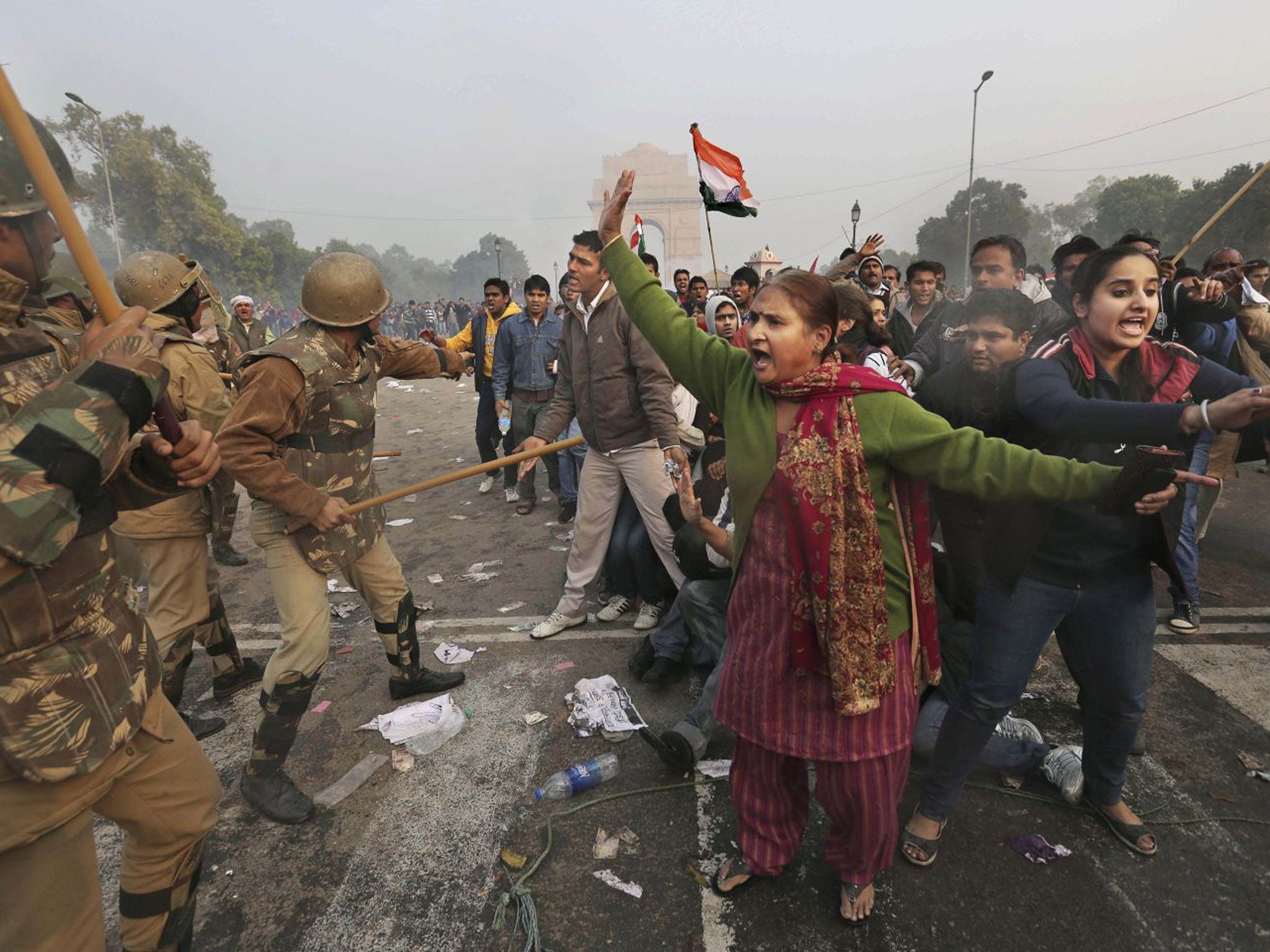Indian PM pledges action to protect women after Delhi gang-rape

Your support helps us to tell the story
This election is still a dead heat, according to most polls. In a fight with such wafer-thin margins, we need reporters on the ground talking to the people Trump and Harris are courting. Your support allows us to keep sending journalists to the story.
The Independent is trusted by 27 million Americans from across the entire political spectrum every month. Unlike many other quality news outlets, we choose not to lock you out of our reporting and analysis with paywalls. But quality journalism must still be paid for.
Help us keep bring these critical stories to light. Your support makes all the difference.
Indian Prime Minister Manmohan Singh pledged to take action to protect the nation's women while the young victim of a gang rape on a New Delhi bus was flown to Singapore for treatment of severe internal injuries.
The rape and brutal beating of the 23-year-old student triggered widespread protests, including a march on Thursday, demanding a government crackdown on the daily harassment Indian women face, ranging from groping to severe violence. Some protesters have called for the death penalty or castration for rapists, who under current laws face a maximum punishment of life imprisonment.
Rape victims rarely press charges because of social stigma and fear they will be accused of inviting the attack. Many women say they structure their lives around protecting themselves and their daughters from attack.
Singh's government set up two committees in response to the protests. One, looking into speeding up sexual assault trials, has already received 6,100 email suggestions. The second will examine what lapses might have contributed to the rape — which took place on a moving bus that passed through police checkpoints — and suggest measures to improve women's safety.
"Let me state categorically that the issue of safety and security of women is of the highest concern to our government," Singh said at a development meeting. He urged officials in India's states to pay special attention to the problem.
"There can be no meaningful development without the active participation of half the population, and this participation simply cannot take place if their security and safety is not assured," he said.
The victim of the gang rape arrived in Singapore on an air ambulance on Thursday and was admitted in "extremely critical condition," to the intensive care unit of the Mount Elizabeth hospital, renowned for multi-organ transplant facilities, the hospital said in a statement.
India's Home Minister Sushilkumar Shinde said in a statement that the government, which is funding and overseeing the victim's treatment, had decided to send her abroad on the recommendation of her doctors.
"Despite the best efforts of our doctors, the victim continues to be critical and her fluctuating health remains a big cause of concern to all of us," he said.
Her family was also being sent to Singapore to be with her during her treatment, which could last weeks, he said.
Meanwhile, hundreds of protesters demanding safer public transportation for women and the resignation of Delhi's police commissioner tried to march to the major India Gate traffic circle in central Delhi before being stopped by police in riot gear manning barricades. Protesters carried signs reading, "Immediately end rape culture in India" and "Zero tolerance of violence against women."
Protests have shut down the center of the capital for days since the rape. Police quashed some of the demonstrations with tear gas, water cannons and baton charges.
One police officer died on Tuesday after collapsing during a weekend protest. Police said an autopsy showed the officer had a heart attack that could have been caused by injuries suffered during violence at the protest. An Associated Press journalist at the scene said the officer was running toward the protesters with a group of police when he collapsed on the ground and began frothing at the mouth and shaking. Two protesters rushed to the officer to try to help him. Police charged eight people with murder in the death of the policeman.
Police said the rape victim was traveling on the evening of December 16 with a male friend on a bus when they were attacked by six men who gang-raped her and beat the couple with iron rods before stripping them and dumping them on a road. All six suspects in the case have been arrested, police said.
B.D. Athani, the medical superintendent of Safdarjung Hospital in New Delhi, where the woman had been treated, said she suffered severe intestinal and abdominal injuries, underwent three surgeries and had parts of her intestines removed, according to the Press Trust of India.
"With fortitude and courage, the girl survived the aftereffects of the injuries so far well. But the condition continues to be critical," he was quoted as saying.
AP
Subscribe to Independent Premium to bookmark this article
Want to bookmark your favourite articles and stories to read or reference later? Start your Independent Premium subscription today.
Join our commenting forum
Join thought-provoking conversations, follow other Independent readers and see their replies
Comments